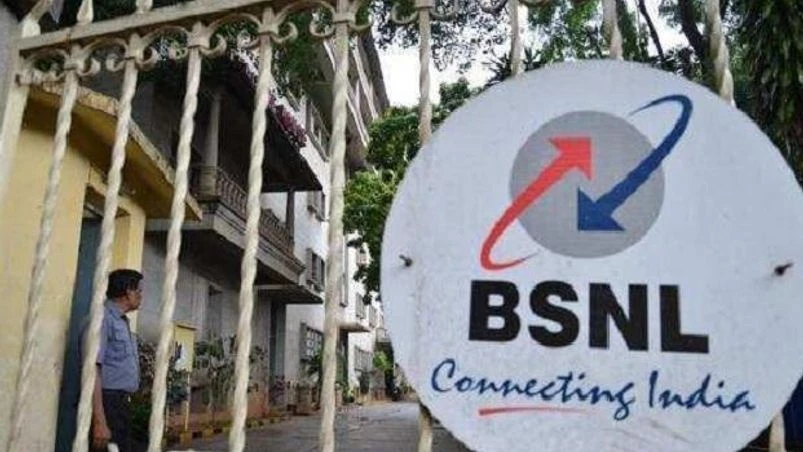 Will BBNL's merger with BSNL expedite Bharat Net project?
Will BBNL's merger with BSNL expedite Bharat Net project?
Bharat Broadband Nigam Ltd is being merged with BSNL. Will this merger address the problems plaguing the project and expedite it. Our next report offers some insight
)
(File photo: Reuters)
A flagship scheme of the Digital India campaign, the ambitious BharatNet project launched to connect India’s gram panchayats with high-speed broadband has long been marred by delays.
It was started in 2011 as the National Optical Fibre Network and was later renamed in 2014 as BharatNet when the Narendra Modi government came to power.
And in 2012, Bharat Broadband Network Limited or BBNL -- a special purpose vehicle -- was set up to implement the project. But, over the years, it has earned a dubious reputation for missing several deadlines set by the government.
In the first phase, BharatNet was to connect 1 lakh village councils by 2013. The target was instead achieved four years later, in December 2017.
The government aimed to connect the remaining Gram Panchayats by March 2019 in the second phase using a mix of state-led, CPSU-led and private-led models. But the deadline was again pushed.
Now, the government has set a revised target to connect all the 6.4 lakh villages spread in 2.6 lakh gram panchayats across the country by 2025 with a minimum broadband speed of 100Mbps.
The government recently informed Rajya Sabha that it had connected just 27% of the villages till March this year.
Of the 33 states/union territories for which data is available, 15 had a connectivity rate of less than 20%. Only Chandigarh and Punjab had achieved over 90% coverage. And just eight states/UT had been able to make over 60% of their villages service ready.
Also Read
The cost of laying the optic fibre has also been escalating. In 2020-21, the government spent Rs 6.9 lakh to lay one kilometre of optic fibre cable which increased to Rs 13.6 lakh in 2021-22. The total approved outlay for the BharatNet project is now Rs 61,109 crore.
The government last month cancelled a Rs 19,000 crore tender to lay cables for the project in 16 states under the Public Private Partnership model after it failed to attract any private bidder. Over 50 companies showed interest, but none came forward eventually.
After the failed tender, the government decided to merge BBNL with the loss-making state-run telecom company BSNL. In the past, the performance of BSNL in implementing BharatNet projects under the CPSU-led model had been poor because of its financial condition.
BSNL CMD PK Purwar, when asked about the probability of meeting the 2025 rural broadband deadline, sought government hand-holding while emphasizing that it’s not a commercial venture.
BharatNet is funded by the Universal Service Obligation Fund (USOF), which gets part of private telcos’ money in a revenue-sharing arrangement. BSNL, as the custodian of the USO Fund corpus of over Rs 58,000 crore, said it would ensure that all such assets are made available to all service providers on arm’s-length principle.
Another industry expert told Business Standard on the condition of anonymity that realistic plans and budgets may improve implementation on the ground.
He said the merger could work conceptually but BSNL will face challenges in running a high-technology customer-facing service competently post the merger.
With experts being skeptical, it is anyone’s guess as to whether the merger would lead to BharatNet programme being implemented in a better way.
More From This Section
Don't miss the most important news and views of the day. Get them on our Telegram channel
First Published: Apr 20 2022 | 7:00 AM IST


